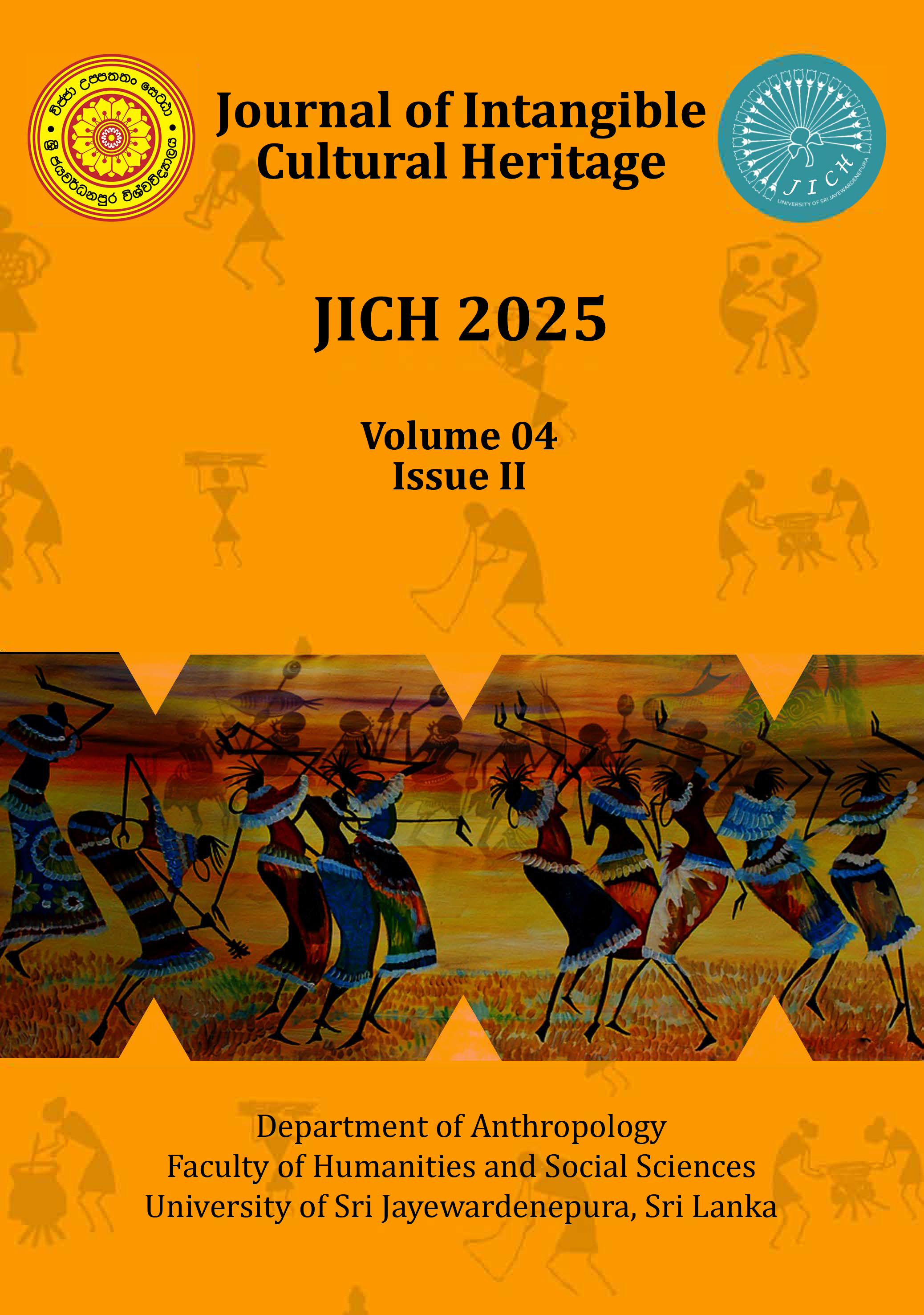A Sustainable Environmental Development Perspective in Low-Country Rituals
DOI:
https://doi.org/10.31357/jich.v4i02.8645Abstract
It must be acknowledged that there has been a unique bond between humans and the environment since the beginning of civilization. Among these, human perception of environmental sustainability is very important. Among the economic, political, and social phenomena that influence it, cultural ideologies are particularly significant. In seeking solutions, the low country rituals were identified as expressions of the folk mind of Sri Lankan culture. The research question was whether the eco-friendly practices of these rituals have an impact on the environment. The study focused on the cultural rules related to the environment in the tree, water, and land rituals of the low country sanniyakuma, suniyam kapima, madushanthikarma, and bali shanthikarma, which were limited in scope. It is assumed that the origin of these cultural norms is expressed through religious ideologies. Attitudes based on human environmental knowledge and beliefs were examined. The qualitative research methodology used was the anthropological method, with low country ritual observation and participant observation considered primary sources of data collection. Meanwhile, ritual literature, as well as the study of human–environment relations, were used as secondary resources. Cultural practices such as nawakola aththa, millakapima, kap situveema, aththagahamathireema, nanumuraya, diyakeliya, kahadiyara kannalawwa, and bahirawa pooja, which were the objectives of the research, were observed. Accordingly, the practices studied confirm that humanistic attitudes and values toward the environment have had a beneficial effect on environmental democracy. It was also observed that eco-cultural norms are based on both human empirical understanding and belief systems about the environment.


